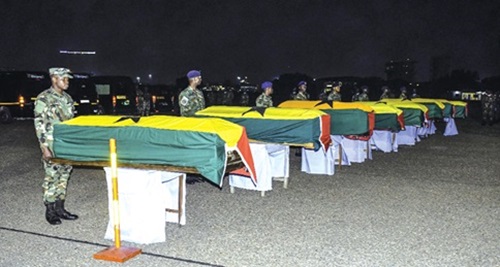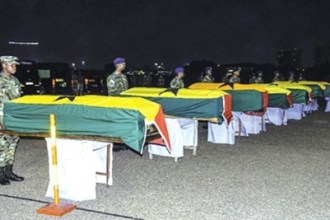Following last Wednesday’s tragic military helicopter crash in the Adansi Akrofuom District of the Ashanti Region, DNA samples from the eight victims have been flown to South Africa for advanced forensic analysis.
The decision, according to the President of the Ghana Academy of Forensic Sciences, Dr. Pet-Paul Wepeba, was not due to a lack of skilled Ghanaian professionals, but rather because the country currently lacks certain specialized laboratory infrastructure required for complex, time-sensitive DNA profiling.
“We have highly trained forensic experts in Ghana,” Dr. Wepeba explained, “but some of the advanced equipment and facilities needed to process sensitive cases under strict timelines are not yet available locally.”
Helicopter Crash Details and Victims
The Ghana Air Force Harbin Z-9 helicopter had departed Accra at 9:12 a.m. en route to Obuasi but lost radar contact shortly after takeoff. It later crashed in a remote area, killing all eight people on board. The identities of the victims lost in the tragedy can be seen here.
Swift Transfer for Faster DNA Results
A private jet, provided by businessman Ibrahim Mahama, was used to transport biological samples—rather than the full remains—to South Africa. The delegation, led by a senior officer from the Ghana Police CID Forensic Unit, is expected to receive results within 6 to 12 hours of arrival.
Interior Minister Muntaka Mohammed-Mubarak, who saw off the team at Kotoka International Airport, thanked Ghanaians for their solidarity and assured families that the government is committed to a thorough and transparent investigation into the cause of the crash.
Why South Africa Was Chosen
While Ghana has forensic laboratories capable of handling many cases, South Africa offers:
- Faster turnaround times for complex DNA analysis.
- Specialized equipment for severely burned or degraded samples.
- A wider range of forensic disciplines, including toxicology, ballistics, and accident reconstruction.
Experts have also called for a comprehensive forensic investigation involving fire specialists, pathologists, toxicologists, and aviation engineers to determine the exact cause of the disaster.









